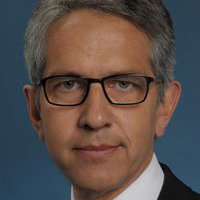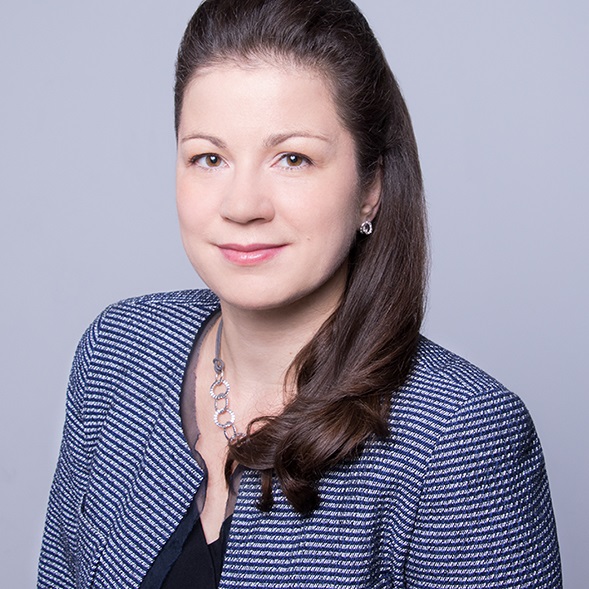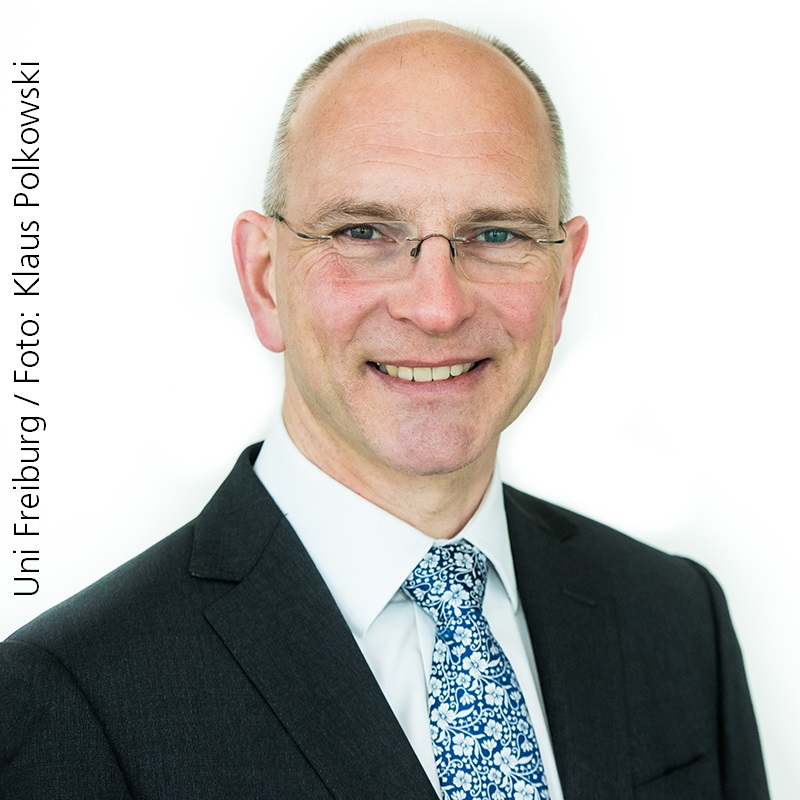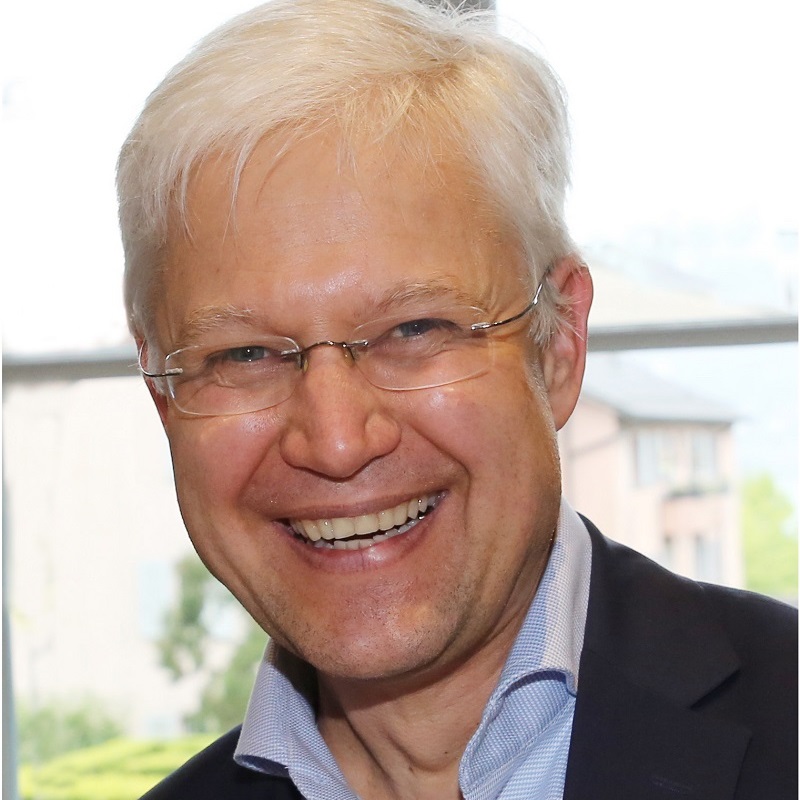Program 2018
Day 1 // 24 October 2018*
| Großer Saal | Kleiner Saal | Hörsaal | Partnering | |
| 2nd floor | 2nd floor | 4th floor | 1st floor | |
| 09:00 - 09:30 | Registration | |||
| 09:30 - 10:30 |
Opening Welcome speech Lecture: Scope of organic and flexible electronics Moderation: André Hofmann, biosaxony e.V. |
|||
| 10:30 - 12:00 |
Panel 1 // Medical technology meets flexible electronics KEYNOTE: Ecosysterms in MedTech: Strategy for global leaders 1 // BioEmbroidery – Novel perspectives for medical devices 2 // Integrated Microwave and Millimeterwave Dielectric Sensors and Actuators in SiGe BiCMOS Technology 3 // Medical technology requirements in the prevention of incontinence |
|||
| 12:00 - 13:00 | Lunch break |
Partnering // Business-Meetings |
||
| 13:00 - 13:30 |
Welcoming address |
|||
| 13:30 - 15:00 |
Panel 2 // Diagnostics | Analytics KEYNOTE: Data-driven personalized medicine 1 // The Core Body Temperature as a Biomarker in Personalized Diagnostics 2 // Breaking the technology barrier in point-of-care testing 3 // New perspectives for sepsis diagnostics 4 // From Macroarray to ELISA Kit for the investigation of autoimmune diseases 5 // Fingerprinting of antibody epitopes |
flexMED Innovation Forum 14:00 - 15:00 |
Workshops 13:30 - 14:00 14:00 - 15:00 |
|
| 15:00 - 15:30 | Coffee break | Partnering // Business-Meetings | ||
| 15:30 - 17:00 |
Panel 3 // New oncological concepts KEYNOTE: High potential of new immunoncological therapies 1 // GynTect – reliable cervical cancer diagnostics based on epigenetic markers 2 // Biological stratification in radiotherapy 3 // Personalized diagnostics for skin cancer |
flexMED Innovation Forum |
||
| 17:00 - 17:45 |
Cooperation Offers 1 // Thinking about your own start-up enterprise - potential support by the Life Science Inkubator 2 // Intelligent financing 3 // Education against the shortage of skilled workers - The dual study program at the Berufsakademie Sachsen 4 // 3C-Management®, Project Management, Real Estate Consulting and Engineering 5 // Challenges and opportunities of emerging innovative biotech/ medtech markets - Polish contribution and perspective 6 // Wroclaw Medical University as a reliable, innovative partner in cooperation 7 // International ZIM cooperation network ProSafeMed - For safe medical devices and procedures |
16:00 - 17:00 1 // Hygienische Eingabegeräte für die Medizintechnik 2 // Druckmess- und Anzeigesystem für Bandagen 3 // Diagnostik (Biosensoren) 4 // Miniaturisierte NIR-Spektroskopie 5 // Flexible Elektronik in flexiblen Endoskopen |
||
| 17:30 - 18:00 | Partnering // Business-Meetings | |||
| 19:00 - 23:00 |
Networking evening event Award ceremony: |
|||
|
*Program in progress // Subject to modification |
||||
Day 2 // 25 October 2018*
| Großer Saal | Kleiner Saal | Hörsaal | Partnering | |
| 2nd floor | 2nd floor | 4th floor | 1st floor | |
| 08:30 - 09:00 | Registration | |||
| 09:00 - 09:30 |
Welcoming address Greeting Challenges in the implementation of innovation in clinical practice EU support for public procurement of innovations |
|||
| 09:30 - 10:30 |
Panel discussion Speaker: Christine Enenkel, Leiterin der Landesvertretung Sachsen der DAK-Gesundheit Diana Lohmann, Geschäftsführerin von Herzzentrum und Helios-Park-Klinikum Leipzig Doris Scheffler, Leiterin der EU-Kontaktstelle für öffentliche Beschaffung von Innovationen Dr. Patrick Pfeffer, Geschäftsführer der aescuvest GmbH Felix Esser, Leiter Industrielle Gesundheitswirtschaft beim BDI |
|||
| 10:30 - 11:00 | Coffee break | Partnering // Business-Meetings |
||
| 11:00 - 12:30 |
Panel 4 // Smart Medical Devices KEYNOTE: Flexible microimplants as interfaces 1 // EyeSkills 2 // Digitally-assisted therapy concept in the device-based FED method for active posture correction in patients with idiopathic scoliosis 3 // Assistance system for the continuation of therapy exercises in the home area 4 // eCovery - The sensor-based, digital rehabilitation assistant 5 // Unleash the power of intelligent algorithms to enable smart medicine |
flexMED Innovation Forum 11:15 - 11:25 11:25 - 11:30 11:30 - 12:30 1 // Intelligente Arztliege 2 // Von der Idee bis zum Produkt – Gedruckte Elektronik aus einer Hand 3 // Elektronische Verifikation von Medikamenten für Patienten und im klinischen Bereich 4 // Intraorale Messtechnik 5 // Dynamische Prozesse und Oberflächeninteraktionen in der Mundhöhle – eine Herausforderung für die moderne Sensortechnik |
2. Life-Sciences-Forum Sachsen Topic block I: Innovationsspielraum zwischen Bundesgesetz und Landespraxis Role and benefits of venture capital in the technology cycle Bringing innovations to widespread supply Innovation, implementation and legal certainty Crowd investing as an alternative form of financing health technologies Moderation: Dr. Hartwig Jaeger, Digital |
|
| 12:30 - 13:30 | Lunch break | Partnering // Business-Meetings |
||
| 13:30 - 14:00 |
Short-Pitches 1 // Semiconducting carbon nanotubes for biosensor applications 2 // Development of an evaluated system for standardized diagnostics and rehabilitation of women with stress incontinence 3 // Cultivation-free Detection of Pathogenic Bacteria via Raman Microspectroscopy 4 // Application-relevant technologies for active chip-based microfluidic systems 5 // Innovative MRSA screening in an emergency room |
flexMED Innovation Forum 1 // Hard- and Software Ecosystem 2 // Funktionstinten für den Digitaldruck von Sensoren 3 // Flexible Elektronik für absorbierbare Implantate 4 // Bioinformatik und Biomarker im Drug Development 5 // Innovatives MRSA Screening in einer Notaufnahme 6 // e-sense-reha — intelligent vernetzte orthopädische Bandagen 7 // Digitalisierung und Automatisierung in der Medizintechnik 8 // Strukturierte organische LEDs für Optogenetik 9 // Potentiale von Graphen in der Diagnostik von Körperfunktionen 10 // Compact and highly efficient gas sensors for exhaled breath analysis 11 // Plattform for Smart Medical Wearables 12 // MACS – Mikrobiologische Aktivitätsmessung mittels chemischer Sensoren 13 // Neubau um UKD – Innovation am Bau 14 // Wie Technology-Push-Ansätze gelingen können |
2. Life-Sciences-Forum Sachsen Topic block II: Pitch session Case study healthcare: Introduction of a process innovation in the geriatric area supply Case study abroad: How do other health regions implement new technologies? Moderation: Marina Heimann, futureSAX & Dr. Hartwig Jaeger, Digital Health Factory
15:00 - 15:30
|
|
| 14:00 - 15:30 |
Panel 5 // Bioinformatics KEYNOTE: Ask Dr. Watson!?! 1 // Smart Data Management and Sharing as Future Factors for Success in Medical and Bioinformatics 2 // Improving radiotherapy by using medical imaging to tell one tumour from the other 3 // Reduction of case numbers for clinical biomarker diagnostic studies through enrichment designs |
14:30 - 15:00 |
||
| 15:30 - 15:45 | Farewell speech | Get-together | ||
| 15:45 - 16:30 | Partnering // Business-Meetings |
|||
| *Program in progress // Subject to modification | ||||
Keynote speakers 2018
PANEL 1 // Medical technology meets flexible electronics
|
|
KEYNOTE:Ecosysterms in MedTech: Strategy for global leaders |
|
PANEL 2 // Diagnostics | Analytics
|
|
KEYNOTE:Data-driven personalized medicine |
|
PANEL 3 // New oncological concepts
|
|
KEYNOTE: High potential of new immunoncological therapies |
|
PANEL 4 // Smart Medical Devices
|
|
KEYNOTE: Flexible microimplants as interfaces to the nervous system |
|
PANEL 5 // Bioinformatics
|
|
KEYNOTE: Ask Dr. Watson!?! Healthcare opportunities with Big Data and Artificial Intelligence |
|
Winner of T³ Technology Transfer Trophy 2018
For the successful transfer of an idea into the commercialization, biosaxony awards the T³ - Technology Transfer Trophy annually as part of the evening event. At bionection 2018, the life sciences company oncgnostics GmbH received the Technology Transfer Trophy. The oncgnostics GmbH is a company working on molecular diagnostics with main focus on the development of in-vitro diagnostics based on epigenetic biomarkers.
bionection 2018
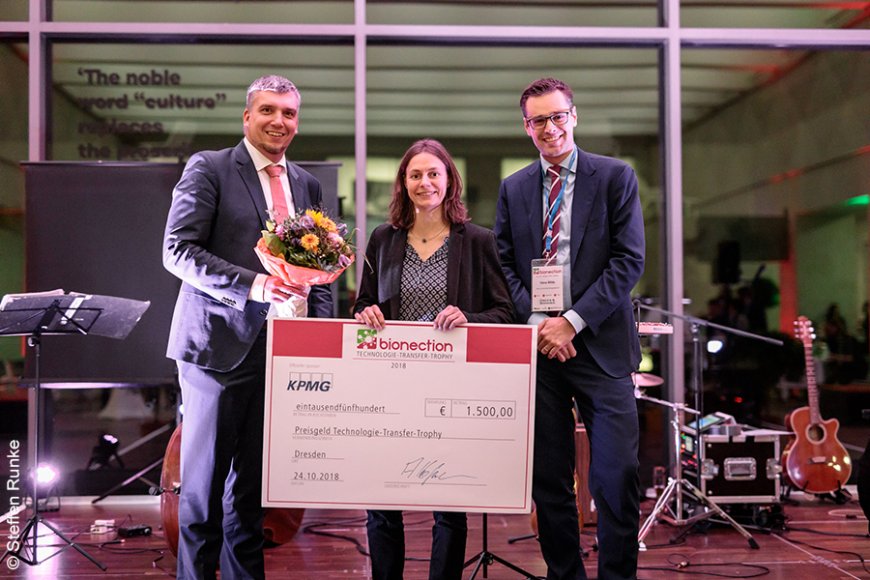
Topics 2018
Medical technology
Medical technology operates at the interface between technology, human beings and medicine. Engineering procedures and technologies are implemented to find innovative solutions for challenging medicals problems. The aim is to improve the patients’ condition and quality of life by developing innovative methods and products for diagnostics, therapy, nursing and rehabilitation.
Main topics:
- Imaging diagnostics
- Medical informatics
- Implants
- Bioprinting technologies / biomaterial
- Endo- / Exoprosthetics
- Cardiovascular medical devices
- Minimally invasive medicine
Diagnostics | Analytics
Analytical techniques are an essential part of forensics and medical diagnostics. Sensitive detection methods for qualitative and quantitative assessment are developed, which allow a fast and precise diagnostics of infections, heart diseases, tumor diseases, autoimmune diseases, metabolic disorders and other diseases.
Main topics:
- Point-of-care diagnostics / Home-care diagnostics
- Lab-on-chip
- Microarray and chip technologies
- Biomarkers
- DNA analytics
- Companion diagnostics
New oncological concepts
Early screening, fast and clear diagnosis and targeted, individualized therapy is considered to be highly relevant for cancer patients. In contrast to classical methods (such as radiotherapy and chemotherapy), new oncological concepts contribute to a better understanding of causes and mechanisms of cancer. These methods will enable patients to participate actively in the progress in cancer research and to boost chances of effective treatment and healing process.
Main topics:
- Clinical studies in oncology
- Innovative cancer screening and therapies
- Liquid biopsy
- Checkpoint inhibitors
- Biopharmaceuticals
Smart Medical Devices
Smart medical devices are used as apparatuses by doctors to diagnose and treat diseases. They combine classical biotechnological processes and techniques other sectors, such as materials science, electrical engineering, information science and communication technology. Smart medical devices and components are used primarily in health industry, hospitals or home environment.
Main topics:
- Microelectronics and microsystem technology for intelligent medical engineering
- Sensor technology
- Smart materials
- Digital Health und Industry 4.0 / Internet of Things
Bioinformatics
Bioinformatics provides technical solutions for information storage, distribution and analysis to support compound areas of scientific research (biotechnology, biomedicine, systems biology etc.) working with large and complex datasets. The objective is to develop effective algorithms that are able to measure, to simulate, to analyze and to predict biological systems and processes in terms of quality and quantity.
Main topics:
- Big data management
- Sequencing, genome analysis and mapping
- Translational medicine
- Protein modelling
- Gene ontology
- Epigenomic data analysis
- Computational neuroscience
